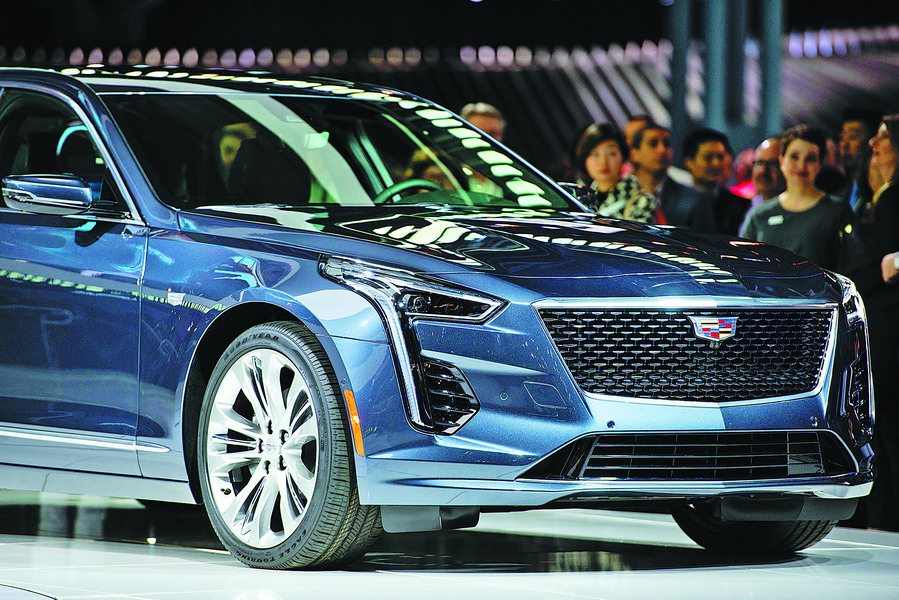Higher trade tariffs could hit United States auto exports

Tax on imports to China set to affect marques that have not yet localized
Cars imported from the United States might soon lose their appeal, as China has decided to impose an additional 25 percent tariff on a list of 106 items, which includes automobiles, in a retaliatory response to the Trump administration's tariff proposals.
With an overall 50 percent tariff, cars originating from the US would see their competitive edge undermined in the world's largest car market, where some 28 million cars were sold last year, according to analysts.
China imported 280,000 cars valued at $13 billion from the US last year, accounting for more than a fifth of China's total car imports, according to statistics from the China Passenger Car Association.
Imported marques include Tesla, Lincoln, Chrysler, Ford, GM, as well as some models from BMW and Mercedes-Benz.
Ford's premium arm Lincoln and Tesla would be affected most, as they do not have local production facilities in China, while other brands already manufacture some models in the country, said Li Yanwei, an analyst at the China Automobile Dealers Association.
Tesla sold 17,030 cars in China last year, accounting for 16.5 percent of its global sales, while Lincoln, as one of the fastest-growing premium brands in the country, delivered 54,124 cars to Chinese customers, according to Li.
Tesla did not comment on the possible effects on its China performance, but told China Daily that there has been no change to its plan to start localization efforts in China around the end of the decade.
Ford, GM and the latter's luxury arm Cadillac will stand almost unscathed as the absolute majority of their cars sold in China are locally produced.
Ford sold some 1.2 million cars last year in China, with 8 percent of them imported, while GM and Cadillac together sold 4 million vehicles in the country, almost all of them locally produced, according to the China Passenger Car Association.
Yet, both the major US carmakers have called for efforts to settle the matter in a peaceful way. GM China said it supports a positive trade relationship between the US and China, and urged both countries to continue to engage in constructive dialogue and pursue sustainable trade policies.
"We continue to believe both countries value a vibrant auto industry and understand the interdependence between the world's two largest automotive markets," the carmaker said in a statement.
Ford China said it encourages both the governments of the US and China to work together to resolve any issues between these two important economies.

